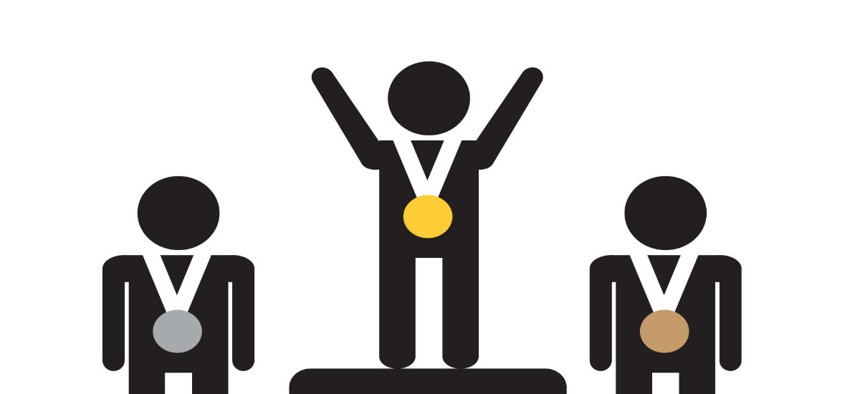Why Do So Many Government Incentive Awards Programs Fail?
Cash bonuses can do more harm than good.
My experience as a government employee for 32 years and a consultant/teacher for nine has taught me that most incentive awards programs do not work. In fact, many have failed so miserably that they wound up being disincentive awards programs.
Why have they failed?
Simply put, it's because employees were generally not involved in the incentive process (goal setting, tracking performance, etc.) and did not see any relationship between performance/behavior and rewards. When employees 1) don’t know what they need to do to be rewarded, and 2) they see that supervisors reward their favorite employees (even if they are not particularly good) while withholding bonuses from those they don’t like (even if they are outstanding), it generates frustration among the troops and helps create a culture of cynicism that we see far too often in government.
Even under the best of circumstances, establishing an effective incentive awards program in government is not easy. After all, the size of the awards that are typically given are often much smaller than those in the private sector — not enough to really motivate people. Moreover, how often have we seen a freeze on awards at individual agencies or governmentwide due to budget constraints? This substantially weakens the program. Nonmonetary awards must play a significant role in any incentive awards program.
So how do you develop an effective incentive awards program in government?
I would start with the approach espoused by Jack Stack in his seminal book The Great Game of Business. You want to get all employees into the game so they think like co-owners of the organization. Here’s the basic idea:
- Teach employees what the numbers mean and where the information comes from.
- Share the numbers with employees so they know what’s going on and why.
- Implement a process that helps employees use the information to improve performance.
The amount of the awards given is less important than making sure employees are involved and engaged in the operation. Providing employees the opportunity to make a difference and see that their opinions are truly valued provides a much greater incentive than giving a few hundred dollars at the end of the year to people who may or may not be deserving of a reward.
That said, incentive awards programs can be an excellent tool when they are properly designed and implemented. Here are some principles for putting an effective strategy in place:
- A program should feature both individual and group awards – because you want people to do their best and work together.
- The awards budget that is within the control of the organization should provide for both special act and annual performance awards.
- The criteria should be established and published in advance so everyone knows what they need to do to achieve performance goals. If possible, the employees should be involved in helping to set these goals.
- Conduct standards should be established to determine eligibility for performance awards (both group and individual.) If someone’s attendance is poor, for example, he should not be eligible for a performance award covering that period; if someone has received a disciplinary action, you may exclude him from receiving an award, even if his performance was excellent.
- People should be taught what the metrics/goals mean, how they are calculated and where they come from.
- People should be given frequent feedback as to how they are doing relative to both the performance standards and the awards goals (orally, via report cards, etc.)
- Performance data should be posted so everyone knows what is going on and there are no surprises or secrets.
- Awards must be reliably applied so people can predict what award(s) if any they will receive.
- The closer awards are given to the performance/conduct being rewarded, the more effective the awards will be. Consider setting quarterly awards goals (both group and individual) and then giving out certificates at the end of the quarter for each goal achieved. At the end of the year, divide the total certificates earned into the performance awards budget, which will determine the value of each certificate and then pay out the awards accordingly.
- Also use nonmonetary awards to recognize deserving employees. Such awards may include time off, a certificate, a parking spot or placing them on a wall of fame.
- Consider setting up a mechanism allowing employees to recognize each other. An effective approach is to distribute “thank you” cards they can give to one another when they do something that embodies one of the organization’s core values. Taking it a step further, employees could give deserving co-workers an awards ticket to be placed in a locked box. At the end of the quarter, several winners would be selected at random from the box and handed two tickets to a local restaurant.
- One of the most powerful things management can do to foster a productive culture is say “thank you” when it is deserved. It doesn’t take much to do this, but the payback can be substantial.
Designing an incentive awards program that truly gets employees into the game and is perceived as fair, predictable and open, can help motivate the workforce and take the organization to another level.
Stewart Liff is a fellow with The Performance Institute, specializing in human resources management, visual performance management and team development. He is the author of multiple books, including Managing Government Employees and A Team of Leaders. Contact him at Stewart.Liff@Performanceinstitute.org.
(Image via SuslO/Shutterstock.com)
NEXT STORY: Report: Happiness Won't Help You Live Longer



